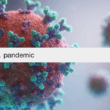
Welcome to “What are the mental disorders: A Comprehensive Guide.” In our fast-paced and interconnected world, mental health has become an increasingly important topic of conversation. This guide aims to shed light on the often misunderstood and stigmatized world of mental disorders, providing a comprehensive and accessible resource for anyone seeking to understand these conditions.
Whether you’re a concerned friend or family member, a healthcare professional, or simply someone curious about the mind’s inner workings, this guide will equip you with the knowledge and tools to navigate the complexities of mental disorders with empathy and understanding. From anxiety and depression to bipolar disorder and schizophrenia, we’ll delve into the symptoms, causes, and available treatments for each disorder, demystifying the often overwhelming jargon and offering practical advice for those affected.
Our hope is that this guide will contribute to breaking down the barriers surrounding mental health and fostering a compassionate, supportive, and well-informed society. So, let’s embark on this transformative journey together as we unmask the mind and embrace the power of knowledge.
Understanding mental disorders
Mental disorders are complex conditions that affect a person’s thinking, feeling, behavior, and overall well-being. They can range from mild to severe and significantly impact an individual’s daily life. It’s important to understand that mental disorders are not a personal failing or a sign of weakness. They are medical conditions that genetic, biological, environmental, and psychological factors can influence them.
Mental disorders can affect anyone, regardless of age, gender, race, or socioeconomic status. They are more common than you might think, with millions worldwide experiencing some form of mental disorder during their lifetime. By understanding these disorders, we can break the stigma surrounding mental health and provide support and empathy to those who need it.
Common types of mental disorders
There are many mental disorders, each with unique symptoms and challenges. Some of the most common mental disorders include anxiety disorders, depression, bipolar disorder, and schizophrenia.
Anxiety disorders are characterized by excessive and persistent worry, fear, or anxiety. They can manifest in various forms, such as generalized anxiety disorder (GAD), panic disorder, social anxiety disorder, and specific phobias. These disorders can be debilitating and significantly impact a person’s ability to function daily.
Depression is a mood disorder that causes persistent sadness, hopelessness, and a lack of interest or pleasure in activities. It can affect how a person thinks, feels, and behaves, leading to emotional and physical problems.
Bipolar disorder, also known as manic-depressive illness, is a condition that causes extreme shifts in mood, energy, and activity levels. Individuals with bipolar disorder experience periods of mania, characterized by elevated mood, increased energy, and periods of depression.
Schizophrenia is a chronic and severe mental disorder that affects how a person thinks, feels, and behaves. Hallucinations, delusions, disorganized thinking, and a lack of motivation characterize it.
Understanding these common types of mental disorders is the first step toward providing support and empathy to those affected.
Causes and risk factors of mental disorders
Mental disorders can have various causes and risk factors. While the exact cause of most mental disorders is still unknown, research suggests that a combination of genetic, biological, environmental, and psychological factors can contribute to their development.
Genetic factors play a significant role in many mental disorders. A family history of a particular disorder can increase an individual’s risk of developing that disorder. However, having a genetic predisposition does not guarantee a person will develop a mental disorder.
Biological factors, such as imbalances in brain chemicals called neurotransmitters, can also contribute to the development of mental disorders. For example, low serotonin levels, a neurotransmitter involved in mood regulation, have been linked to depression.
Environmental factors, such as trauma, abuse, neglect, or a significant life event, can trigger or exacerbate mental disorders. These factors can disrupt the brain’s normal development and functioning, leading to the onset of symptoms.
Psychological factors, such as chronic stress, low self-esteem, or a history of trauma, can also contribute to developing mental disorders. These factors can influence how a person perceives and copes with stress, leading to symptoms.
It’s important to note that mental disorders are not caused by personal weakness or character flaws. They are legitimate medical conditions that require understanding, empathy, and appropriate treatment.
Symptoms and signs of mental disorders
The symptoms and signs of mental disorders can vary depending on the specific disorder and the individual. However, some common symptoms include:
– Persistent feelings of sadness, hopelessness, or despair
– Excessive worry, fear, or anxiety
– Changes in appetite or weight
– Difficulty concentrating or making decisions
– Changes in sleep patterns
– Fatigue or a lack of energy
– Withdrawal from social activities
– Irritability or anger
– Suicidal thoughts or behaviors
– Hallucinations or delusions
It’s important to remember that experiencing some of these symptoms does not necessarily mean a person has a mental disorder. However, if these symptoms persist and interfere with a person’s daily life, it may be a sign that they should seek professional help.
Diagnosis and treatment options
Diagnosing mental disorders can be complex, as many disorders share similar symptoms. Mental health professionals, such as psychiatrists, psychologists, and licensed therapists, use a combination of interviews, questionnaires, and assessments to make an accurate diagnosis.
Once a diagnosis is made, various treatment options are available for mental disorders. These can include:
– Psychotherapy: Psychotherapy, also known as talk therapy, involves meeting with a mental health professional to discuss thoughts, feelings, and behaviors. It can help individuals gain insight into their condition, develop coping strategies, and improve overall mental well-being.
– Medication: Medications can be prescribed to manage the symptoms of certain mental disorders. These medications can help regulate brain chemicals and improve mood, sleep, and concentration.
– Lifestyle changes: Making positive lifestyle changes, such as regular exercise, healthy eating, and stress management techniques, can have a significant impact on mental well-being.
– Support groups: Joining a support group can give individuals a sense of community and understanding. Sharing experiences and learning from others who have similar struggles can be highly beneficial.
The appropriate treatment option will depend on the specific mental disorder, its severity, and the individual’s preferences and needs. Working closely with a mental health professional to develop a personalized treatment plan is essential.
Coping strategies for individuals with mental disorders
Living with a mental disorder can be challenging, but there are coping strategies that can help individuals manage their symptoms and improve their quality of life. Here are some effective coping strategies:
– Self-care: Prioritizing self-care is crucial for mental well-being. This can include activities such as getting enough sleep, eating nutritious meals, engaging in regular exercise, and practicing relaxation techniques like meditation or deep breathing.
– Building a support system: A strong support system can give individuals the understanding and encouragement they need. Surrounding oneself with friends, family, or support groups can make a significant difference in managing a mental disorder.
– Seeking professional help: It’s important for individuals with mental disorders to seek professional help and follow their treatment plan. Mental health professionals can provide guidance, support, and therapy sessions tailored to the individual’s needs.
– Setting realistic goals: Breaking larger goals into smaller, achievable ones can help individuals feel a sense of accomplishment and maintain motivation. Setting realistic expectations for oneself can reduce stress and improve overall well-being.
– Practicing stress management techniques: Learning and implementing stress management techniques like deep breathing, mindfulness, or engaging in hobbies can help individuals cope with stress and reduce symptoms.
Support systems for individuals with mental disorders
Support systems are essential for individuals with mental disorders, providing a network of understanding, empathy, and encouragement. Here are some support systems that can be beneficial:
– Friends and family: Having the support of loved ones can make a significant difference in managing a mental disorder. Friends and family can provide emotional support, help with daily tasks, and be a listening ear when needed.
– Support groups: Joining a support group can connect individuals with others who have similar experiences and struggles. These groups provide a safe space for individuals to share their thoughts, feelings, and coping strategies.
– Mental health professionals: Establishing a relationship with a mental health professional, such as a psychiatrist, psychologist, or therapist, can provide individuals with ongoing support and guidance.
– Online communities: Online communities and forums can be a valuable resource for individuals with mental disorders. They offer a platform for individuals to connect, share experiences, and support one another.
Building a strong support system is crucial for individuals with mental disorders. It’s essential to surround oneself with understanding and empathetic individuals who can provide the necessary support.
Mental health resources and organizations
Numerous resources and organizations are dedicated to mental health support and education. These resources can provide valuable information, helplines, and access to mental health professionals. Some reputable mental health resources and organizations include:
– National Alliance on Mental Illness (NAMI)
– Mental Health America (MHA)
– Substance Abuse and Mental Health Services Administration (SAMHSA)
– American Psychological Association (APA)
– National Institute of Mental Health (NIMH)
These organizations offer a wealth of information, online resources, and helplines for individuals seeking support or further education about mental health.
Breaking the stigma surrounding mental disorders
Despite progress in recent years, there is still a significant stigma surrounding mental disorders. This stigma can prevent individuals from seeking help, sharing their experiences, and receiving the support they need. Breaking the stigma requires collective efforts from individuals, communities, and society. Here are some ways we can contribute to breaking the stigma:
– Education and awareness: Educating ourselves and others about mental disorders can help dispel myths and misconceptions. Promoting awareness campaigns and participating in mental health events can contribute to a more informed and understanding society.
– Language matters: The words we use to describe mental disorders can have a significant impact. Using person-first language, such as “a person with schizophrenia” instead of “a schizophrenic,” can help reduce stigma and promote empathy.
– Encouraging open conversations: Creating a safe space for open and honest conversations about mental health can help individuals feel comfortable seeking help and sharing their experiences.
– Advocacy and support: Supporting mental health initiatives and advocating for mental health policies can contribute to breaking down barriers and increasing access to care.
By challenging stereotypes, promoting understanding, and offering support, we can work towards a society that embraces mental health and reduces the stigma associated with mental disorders.
Frequently Asked Questions
What are some common types of mental disorders?
There are various types of mental disorders, including depression, anxiety disorders (such as generalized anxiety disorder, panic disorder, and social anxiety disorder), bipolar disorder, schizophrenia, obsessive-compulsive disorder (OCD), post-traumatic stress disorder (PTSD), and eating disorders (such as anorexia nervosa and bulimia nervosa), among others.
What are the causes of mental disorders?
Mental disorders are complex conditions, and their causes can vary. They often result from a combination of genetic, biological, environmental, and psychological factors. Traumatic experiences, family history of mental illness, brain chemistry imbalances, substance abuse, and chronic medical conditions can also contribute to the development of mental disorders.
Can mental disorders be cured?
While some mental disorders can be effectively managed and symptoms reduced with treatment, they are generally not "cured" in the traditional sense. Mental health treatment often involves a combination of therapy, medication, lifestyle changes, and support systems to help individuals manage their symptoms and lead fulfilling lives.
Can mental disorders be prevented?
While it may not be possible to prevent all mental disorders, certain strategies can promote mental well-being and reduce the risk of developing certain conditions. Maintaining a healthy lifestyle, managing stress, seeking early intervention for mental health concerns, building supportive relationships, and practicing self-care can contribute to better mental health outcomes.
How can I support someone with a mental disorder?
Supporting someone with a mental disorder involves understanding, empathy, and patience. Offer your support and encourage them to seek professional help. Educate yourself about their condition, be a good listener, and avoid judgment or stigmatizing language. Encourage them to engage in self-care activities and provide practical assistance when needed.
Conclusion
“Unmasking the Mind: A Comprehensive Guide to Common Mental Disorders” aims to provide a comprehensive and accessible resource for understanding mental disorders. By exploring the symptoms, causes, and available treatments for various mental disorders, we hope to demystify these conditions and foster empathy and understanding.
It’s crucial to remember that mental disorders are legitimate medical conditions that require support, understanding, and appropriate treatment. By breaking the stigma surrounding mental health and supporting those affected, we can create a compassionate, supportive, and well-informed society. Let us continue to unmask the mind and embrace the power of knowledge as we navigate the complexities of mental disorders together.



